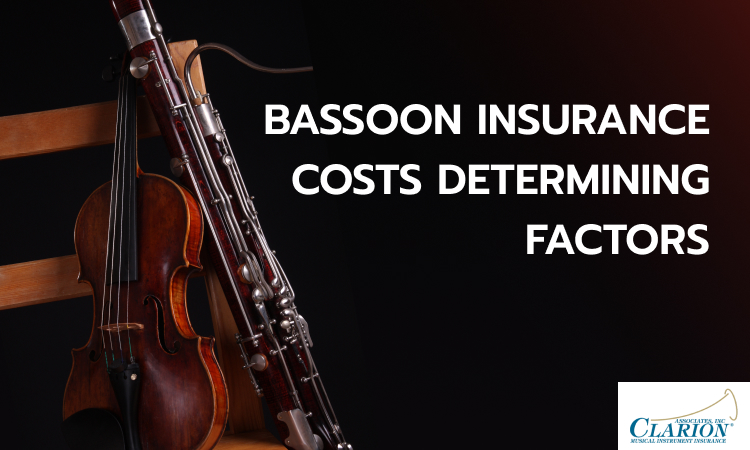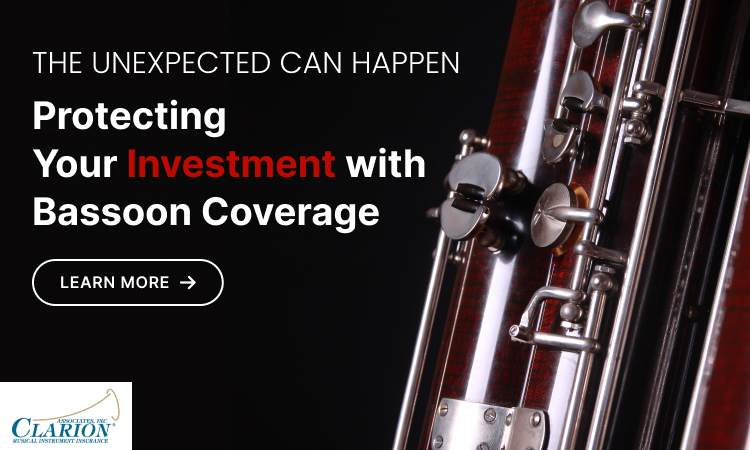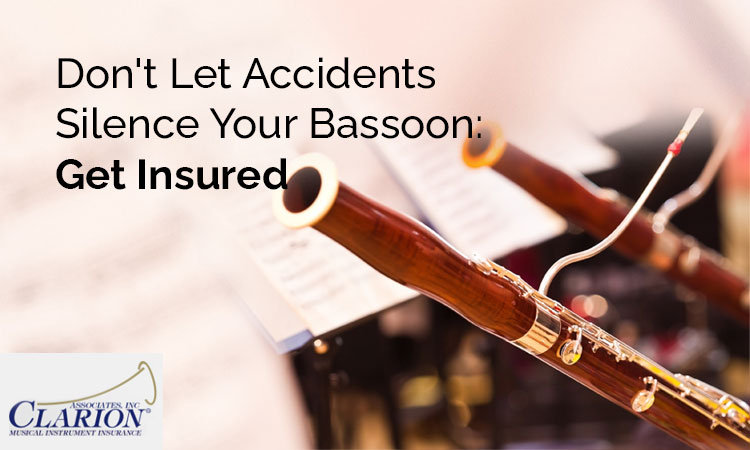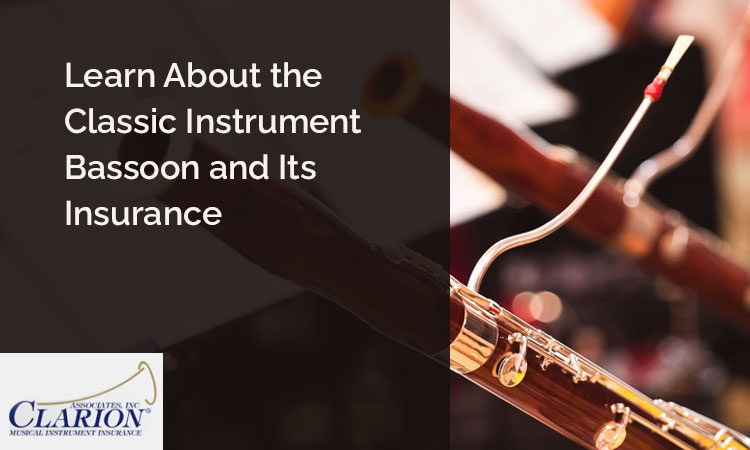Bassoons are delicate and expensive musical instruments. This very nature of them makes these woodwinds vulnerable to theft, damage, and loss. Therefore, it is crucial to protect them for their safety while ensuring your peace of mind and financial security. And one of the best ways to secure them is – getting a dedicated insurance plan. However, the cost of an instrument-centric insurance product can vary depending on several factors.
Let’s explore the factors influencing the cost of insuring your beloved instrument.
Factors Influencing Insurance Costs
Read on the common factors that are likely to affect your coverage costs:
- Replacement Value: Do you know the single most significant factor influencing the cost of your insurance? It is the replacement value of your gear. High-end professional models crafted from exotic wood like grenadilla can easily reach tens of thousands of dollars, while student models might cost a few thousand. It is simple mathematics – the higher the value, the higher the premium amount.
- Coverage Options: Different instrument protection plans offer different levels of coverage. Comprehensive coverage typically includes theft, accidental damage, fire, and vandalism. Collision coverage offers additional protection if your instrument is damaged during transportation. Adding these additional coverages will increase your premium.
- Deductible: A deductible is the amount that is due at your end. It is an out-of-pocket expenditure before the policy kicks in. Opting for a higher deductible can lower your premium amount to a great extent. However, balance this cost-saving measure with the potential financial burden of a bigger upfront expense in case of a claim.
- Your Location: Crime rate and weather conditions in your area can affect your premium as well. Locations with a higher risk of theft or extreme weather may have slightly higher costs.
- Your Playing Frequency: Professional musicians who travel frequently with their instruments may require broader coverage and pay a higher premium compared to a hobbyist who plays their bassoon primarily at home.
- Your Insurance Company: Shop around and compare quotes from different bassoon insurance companies specializing in musical instruments. Some companies offer discounts for bundling your gear insurance with other policies, like renters or homeowner’s plans.

Tips for Getting the Best Rate on Bassoon Insurance
- Get Accurate Instrument Valuation: Obtain a professional appraisal from a qualified luthier to determine the accurate replacement value of your bassoon. It ensures you are adequately insured without overpaying for inflated values.
- Increase Your Deductible: Raising your deductible can significantly reduce your premium. However, make sure to carefully consider your financial situation and comfort level with a higher upfront cost in case of a claim.
- Shop Around and Compare Quotes: Don’t decide on the first quote you receive. Get quotes from multiple reputable musical instrument insurance companies to find the best combination of coverage and affordability.
- Maintain Your Bassoon: Regular maintenance and proper care for your instrument can minimize the risk of damage and potential claims, potentially leading to lower premiums over time.
- Bundle Your Package: If you have other protection policies, inquire about potential discounts for bundling your bassoon insurance with them.
Beyond Cost: The Value of Protection
While the cost is important, remember that this coverage goes beyond a simple financial transaction. In the unfortunate event of theft, damage, or loss, insurance covers the replacement or repair costs, safeguarding you from a significant financial burden. Playing your bassoon knowing it’s insured allows you to focus on your music without the constant worry of potential losses. Travel and perform with confidence, knowing your instrument is protected against damage during transportation or while on location.
The Final Note
Investing in an instrument-oriented insurance policy is an investment in your passion. It is more like self-love and self-care. By understanding the factors influencing costs and utilizing the provided tips, you can secure the best rate for your needs. Remember, the peace of mind and financial protection gained far outweigh the financial investment in insurance. Now, go forth and make beautiful music, knowing your beloved bassoon is safe and secure.








